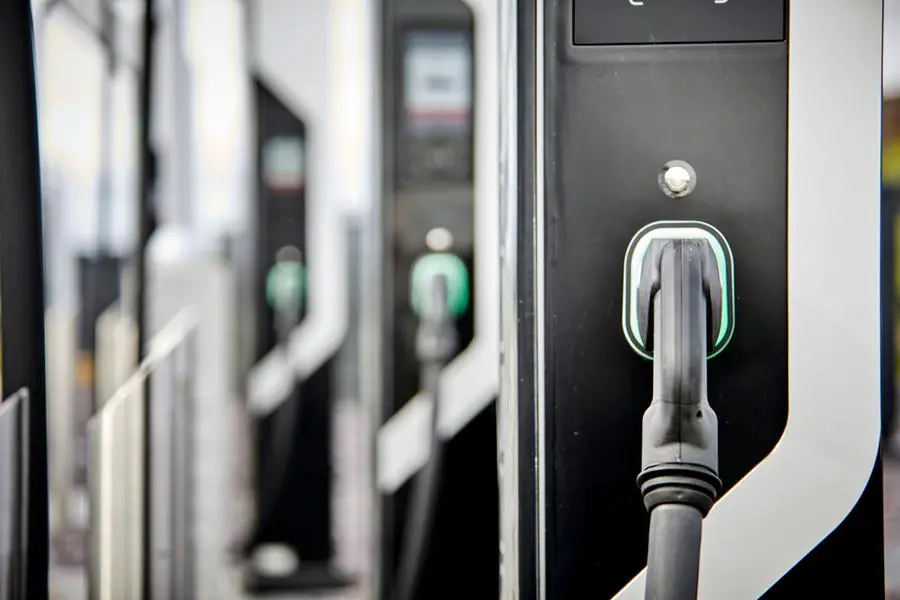PHOTO
DUBAI: H.H Sheikh Ahmed bin Saeed Al Maktoum, Chairman of the Dubai Supreme Council of Energy (DSCE), chaired the 74th meeting of the Council, which was held in the presence of Saeed Mohammed Al Tayer, Vice Chairman of the DSCE.
The meeting was also attended by Ahmed Buti Al Muhairbi, Secretary-General of the Dubai Supreme Council of Energy, and board members Dawood Al Hajri, Director General of Dubai Municipality; Abdulla bin Kalban, Managing Director of Emirates Global Aluminium (EGA); Saif Humaid Al Falasi, CEO of Emirates National Oil Company (ENOC); Juan-Pablo Freile, General Manager of Dubai Petroleum; and Hussain Al Banna, Acting CEO of the Strategy & Corporate Governance Sector at the Roads & Transport Authority (RTA).
The meeting reviewed progress of the Green Charger initiative, which was launched by Dubai Electricity and Water Authority (DEWA) to increase the number of for electric vehicle (EV) charging stations in Dubai and support the transition to environmentally-friendly vehicles.
The initiative has achieved remarkable success. By the end of 2022, the number of Green Chargers reached 350 with more than 620 charging points across Dubai.
The initiative has had a huge impact on the increase of electric and hybrid vehicles. The number of EVs reached 15,100, while the number of hybrid vehicles reached 13,500 by the end of 2022.
The meeting also reviewed the Dubai Waste Management Centre in Al Warsan, the largest of its kind to turn waste into energy. This was launched by Dubai Municipality in partnership with Dubai Holding and Dubal Holding.
Progress in this project has reached 91 percent, and the first phase will be operational in May 2023. This project is a significant step in waste management and converting waste into energy in line with the UAE’s sustainable development goals.
The meeting also discussed the initiatives and programmes supported by the Dubai Supreme Council of Energy to be a platform that brings together the government and private sector in Dubai and expands the scope of current applications in line with the principles of a circular economy.
The UAE attaches great importance to achieving sustainable development and the efficient use of natural resources through the transition towards a green economy and increasing the share of renewable and clean energy.
The UAE Circular Economy Policy identifies the priorities in this area. Priorities include green infrastructure, sustainable transportation, sustainable manufacturing, and sustainable food production and consumption.
“We are guided by the vision of the wise leadership to anticipate and shape the future. In Dubai, we have a clear vision that includes the Dubai Clean Energy Strategy 2050 and the Dubai Net Zero Carbon Emissions Strategy 2050. We have taken concrete steps in developing pioneering projects that support the UAE’s future ambitions to build a successful green economy model. At the Dubai Supreme Council of Energy, we launch initiatives and regularly review work plans to ensure the achievement of national strategies towards net-zero by 2050 and consolidate a low-carbon economy. Our initiatives consolidate the UAE’s leading role in implementing the best practices and adopting the latest technologies. These will be reviewed during COP28, which will be hosted in the UAE in November 2023,” said Saeed Mohammed Al Tayer, Vice Chairman of the Dubai Supreme Council of Energy.
“In developing policies and programmes that support sustainable energy, the Dubai Supreme Council of Energy is committed to focusing on the technical and financial elements to ensure successful implementation. This approach has resulted in developing unique projects in the UAE and the region,” said Ahmed Buti Al Muhairbi, Secretary-General of the Dubai Supreme Council of Energy.





















